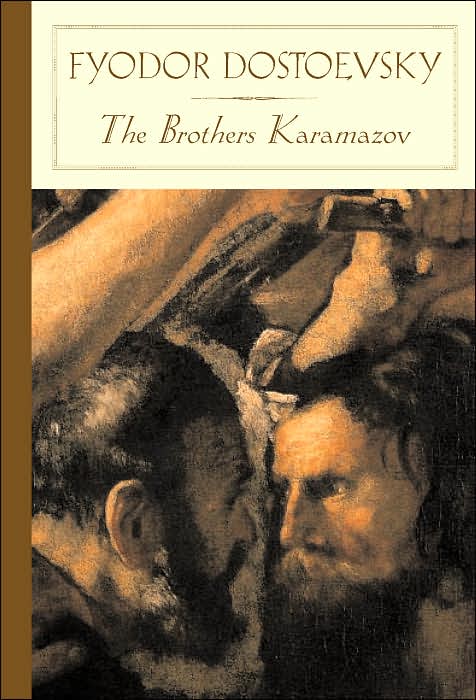
Well, I'm in Brazil participating in a mission trip from our church. It is a captivating place with passionate locals, hot weather and well defined divisions between the people. The rich and the poor do not associate...but I suppose we do that in America, too. The Catholics and the Protestants don't recognize each other as Christians...but then again, when was the last time you saw a priest and a minister really working and worshiping together in the States? The Protestants don't trust each other, either, and run each other into the ground, claiming that they are the only real Christians around...okay, we do that, too. Well, at least I can say that it is good to come and see our own brokeness through the brokeness of others. Yet, in the midst of the divisions here, God is moving in life giving ways.
I was asked to preach at the Chapel Service on Wednesday night for the South American Theological Seminary (SATS). I got the request rather last minute, but here is the sermon that I have come up with (if you are familiar with my sermons, much of this will sound familiar! Hey, that's what you get for last minute, I suppose.). I was given the text. Oh, by the way, "Mas Deus" means "but God" in Portuguese.
Ephesias 2: 1-10
"But God"
Grace and peace to you from God our Father, and our Lord Jesus Christ. Thank you for letting me come and share in your worship this evening. It is an honor to be a part of such a wonderful community, seeking to make the love of God and the Good News of Jesus Christ a reality, here on earth as it is in heaven. Thank you for opening your hearts, your lives, and your pulpit to me.
Since we first arrived here, and Sam and Rosalee, have shared with us the vision of wholeistic ministry at SATS, I have thought about my friend Stephanie. Every time we go to a crèche, and witness how the Gospel of Jesus Christ is being made a reality in the favelas, I hear Stephanie’s voice. We went to the Bakery of Love, and as we were there watching the poor get fed with bread so that their ears may be opened to hear about the bread of Life, I couldn’t stop thinking about Stephanie.
Stephanie is not a Christian. She does go to church, though. Twice a year. Can you guess what times of year those are? Christmas and Easter. She fully claims that she is not really a Christian. Most of the year she has no time for God or the church. “Those other seasons are boring,” she says. Fasting, kneeling, and the never-ending green of Ordinary Time are all things that she is quite happy to do without. But every year, sometime around the Christmas and Easter seasons, she just can’t stay away from church.
I was speaking with her before we left for this trip and was giving her a hard time, telling her that we were in Lent, which meant that she only had a few more weeks before she would have to make her semi-annual pilgrimage back to church. Then, out of curiosity, I asked her why she even bothered worshipping on Christmas and Easter. She paused for a moment, and then said, “The best part about going to church during the holidays is the feeling of hope. It’s tangible. Everywhere else you look there is despair, and hurting, and wars, but for some reason, you Christians never give up hope that things are going to get better.”
Maybe that has something to do with the second chapter of Ephesians. It is impossible to come away from the letter of Ephesians and not be a relentless hoper. Sam tells me that you are working through different books as a community, sitting with a text for a while and allowing that text to shape your worship her at Chapel. And, as it happens, you have now come to the 2nd chapter of Paul’s letter to the church at Ephesus The thrust of that hope begins here in the 2nd chapter.
Don’t get me wrong, the 2nd chapter doesn’t start off all that hopeful. Rather, it starts off pretty grim. St. Paul tells us that we were all dead. We were dead through our trespasses, our sins, which brought us death. Not very hopeful news, really. What’s worse, Paul tells us that we were not all that special. In fact, we were just like everyone else. Everyone, according to St. Paul, is dead because of our sins.
Not very hopeful. Not very surprising, either. The suffering and death in this world is sometimes overwhelming. You don’t have to look any farther than the newspapers to see that the world is a pretty dead place. Corruption in government, corruption of the media, poverty, wealth, hunger, murder, all of these things are full of death. Up to this point, St. Paul has not offered us any hopeful news, or anything new news.
And then, in the fourth verse of the 2nd chapter, St. Paul writes two words that plant the seeds of hope in the reader. “But God.” Mas Deus. You were dead in your sins, headed down the same path that leads to death as the whole world, but God, Mas Deus, refused to leave you there. God saw the suffering that was your life. God saw the violence and corruption and hopelessness being handed down from one generation to the next, Mas Deus, God sent his Son, Jesus Christ, and in him redeemed you from your brokenness, so that you might join into God’s holiness. You were dead, but God, Mas Deus, gave you life. The world struggles on in hopeless toil, facing death and corruption and nothing more than the promise of trying to make themselves great. But God, Mas Deus, has chosen something far better for you. You were as good as dead, says St. Paul, Mas Deus has bigger plans for you. “Plans for you to prosper and not perish. Plans to give you a future and a hope.” It’s hard to be hopeless with a God like that.
It’s our job to speak those hopeful words into a dying world. Mas Deus. Those two words hold within them the keys to life, the hope that God is in our midst and does, indeed have something better for us. Those two words, Mas Deus, must be on the lips of every Christian. As we face the brokenness of the world, it must be our task to stand with St. Paul, name the brokenness, and then name the hope that is inherent in the Gospel of Jesus Christ. We may struggle with our own sin, falling over and over again back into those same traps that have ensnared us before. You may be losing hope, as you stare into the depth of your own brokenness, Mas Deus has not given up on you. Perhaps you are struggling to make ends meet, the work load of school and your job and your family is overwhelming and it all seems like too much, Mas Deus, the One who called you here will not leave you here to die. Your work in the favellas, or in the city, or in the country can sometimes be taxing and it can be all that you can do to keep your head above water, Mas Deus is there with you, working to redeem your work as you seek to join in the work of redeeming the world. Christians, as recognized by my friend Stephanie, are people who stare into the brokenness of the world and dare to speak the hopeful words, But God.
I saw evidence of the hopefulness of Mas Deus just yesterday. We spent the day with Angelica and Marco, two leaders of AMAS. AMAS is an organization from Central Methodist Church downtown, they run 3 creche’s and a bakery for the poor in the northern part of Londrina. They took us around and showed us the crèches. They spoke to us about the work that God is doing in their midst there, how God is using them to not only feed the hungry, but to offer to them the bread of Life, as well. I was speaking with Marco and asked him how he got into this sort of work. He told me that he used to be a lawyer, and he had plans to try and be a judge one day. One day, out of nowhere, he was going about his normal life and God grabbed him and said, “I’ve got plans for you.” Marco had plans to make himself great, Mas Deus, God had plans to make Marco holy.
You, like Marco, are the result of what St. Paul calls God’s grace. There is nothing that you have done to deserve to be here, training for ministry, joining in the work of God. Praying the right prayer, believing the right doctrine, making the right grades did not get you here. There was nothing that you could do to make yourself right, to get yourself off the path that leads to death. But God, through God’s mercy, has seen it right and fitting to incorporate us into the hopeful Gospel of Jesus Christ.
There is a world outside these walls that is dying to hear those hopeful words. Mas Deus. God expects you to stand in the midst of the hopelessness, and be the ones who with their very lives proclaim to a dying world, “You think that this is it, there there is no hope and there is nothing beyond yourself or the grave, Mas Deus.”






